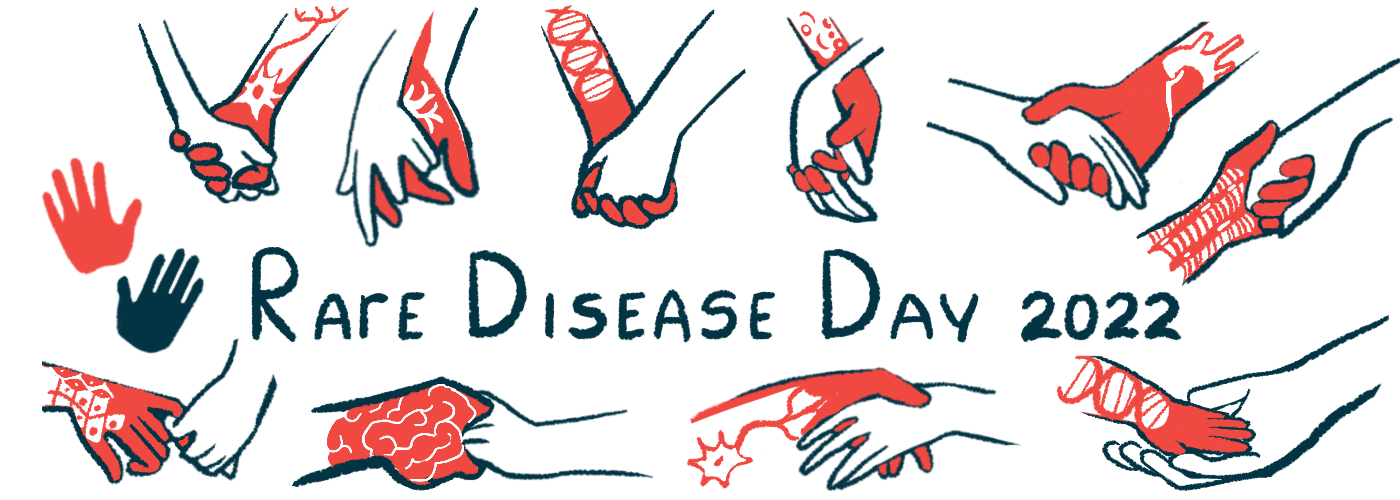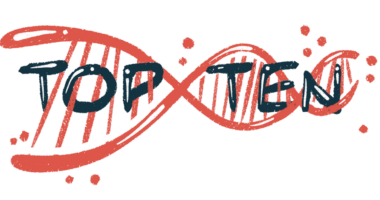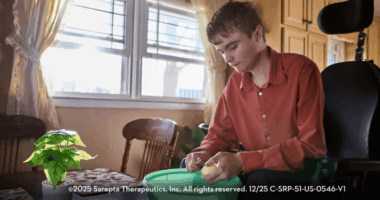Rare Disease Day Panel Opens Window to Patient Experience

Bionews, the publisher of this website, hosted a virtual panel discussion on Rare Disease Day 2022, taking a deeper dive into what it’s like to live with a rare disease, including conversations about advocacy, mental health, survivor’s guilt, treatment of minority patients, and more.
The Monday event, “A Window Into RARE,” was hosted by Liza Bernstein, a patient advocate and three-time breast cancer survivor. Panelists included columnists Paris Dancy of Cushing’s Disease News, Michelle Gonzaba of Myasthenia Gravis News, Claire Richmond of Porphyria News, and Sherry Toh of SMA News Today.
“It’s going beyond the surface level of understanding what a rare disease is,” Gonzaba said of the panel discussion shortly after it ended. “We talked about … long-term living with the disease, day-to-day. What are actually experiences that I may have?”
The discussion revolved around five questions that probed the realities of living with rare diseases. The 90-minute panel discussion’s audience peaked at nearly 200.
Anonymous and named viewers, some of whom did not have rare diseases themselves, left their comments and questions in the Zoom chat. A couple were answered by columnists before the end of the event.
“I can’t say how important this event was,” said Emily, 28, recently diagnosed with sero-negative rheumatoid arthritis and chronic migraines, in a private message sent to an event organizer. She declined to identify herself fully because she had not yet revealed that diagnosis at her new workplace. “Both my sister and I were brought to tears at several points with how much this has resonated with both of our own experiences with chronic illness.”
The first question asked of panelists encompassed the main theme behind the panel discussion — the things that are overlooked in rare disease advocacy and awareness. Richmond dove into the mental health aspects of living with a rare disease like acute hepatic porphyria, and the traumatizing nature of a diagnostic odyssey and recurrent hospital visits.
Framing it from the perspective of his mother-in-law’s journey with colon cancer, Dancy described the need to obtain as much knowledge as possible about a given disease.
Toh, in response to a question about real-world examples where progress is being made to improve life for those with rare diseases, noted that the video game industry is making an effort to think about those with disabilities when designing games or equipment.
“Looking at the net benefit people with disabilities can bring is not something I’ve seen much in disability advocacy — except in the gaming world, where the accessibility scene is now focusing more on implementing accessibility over why accessibility is needed,” Toh wrote, which was repeated by her friend and fellow SMA News Today columnist and panelist Brianna Albers. Toh lives in Singapore and could not attend the event because of the time difference with the U.S.
Features that slow down pacing, highlight dialogue for people with deafness, and remove repetitive motions are becoming more commonplace.
The final questions asked columnists what they would say to those newly diagnosed with a disorder and those who are currently living with their diagnosis.
Dancy repeated his advice to seek information, but added practical nuggets, such as “Allow your trial to become your triumph,” and “Don’t make permanent decisions based on a temporary situation.”
Toh also reminded viewers that having a rare disease is not their fault, and they shouldn’t beat themselves up for it.
Richmond’s advice to those currently living with a rare disease was not to compare oneself to others. All panelists agreed.
“Be kind to yourself,” Gonzaba said in the panel discussion. “And I would also say don’t let it become your full identity. You’re not just someone with a rare disease.”
Audience questions closed the panel discussion. Most questions were disease-specific, though one inquiry explored how to navigate long-term health plans when dealing with short-term health crises. A more personal comment from someone diagnosed with amyotrophic lateral sclerosis (ALS) nine years ago asked about dealing emotionally with their life when many of their friends had died. Panelists suggested talking through it with a friend and using the time they still have to support the community.
Panelists were invited to talk about whatever was top-of-mind for them, and that idea is what inspired Richmond to participate in this event. It made the panel’s discussion wide-ranging and allowed diverse perspectives, Richmond said. It didn’t just focus on the frequently broached topics like the diagnostic odyssey, though she considered those topics also of importance.
“It spoke to things that we don’t typically talk about as adults living rare,” Richmond said.
Bernstein added that these often-overlooked topics, which were discussed throughout the panel, are relatable and helpful for those in the rare disease community.
“It’s so validating to know we aren’t alone, especially when very few people in the world have your diagnosis or experience,” Bernstein said. “So, I hope this event will help people know they’re not alone.”






